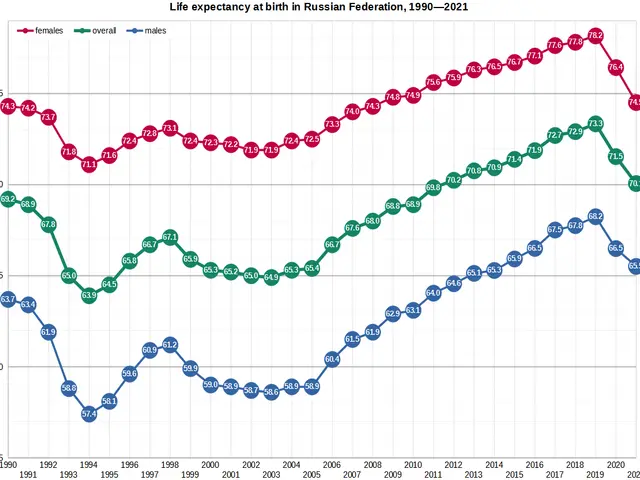Wealthier Americans will primarily reap the benefits of Trump's tax legislation, leaving lower-income citizens with reduced financial resources, as per the Congressional Budget Office's assessment.
The White House deputy press secretary, Abigail Jackson, has asserted that President Trump's tax and spending legislation is delivering substantial savings for families, boosting the economy, and securing the borders. However, a closer look at the legislation, particularly the Tax Cuts and Jobs Act (TCJA) signed in 2017 and its subsequent extensions, paints a different picture.
According to multiple analyses, the richest 10% of Americans are projected to see substantial income gains—about $13,600 annually on average from tax cuts—while the poorest 10% will face an average income loss of roughly $1,200 per year, equating to a 3.1% reduction in their income.
The tax cuts primarily benefit high earners and corporations. The corporate tax rate was cut significantly (to 21%), benefiting business owners and shareholders. The poorest groups suffer income declines mainly due to cuts and restrictions in government programs such as Medicaid and food assistance, which reduce effective support for low-income households.
Middle-income households see moderate income increases, but these gains are much smaller compared to the wealthy. The richest 20% receive around 68% of the total tax cuts, with the top 5% alone getting 44%, making the tax change markedly regressive.
The law eliminates personal and dependent exemptions, rolls back some deductions, and reduces spending on social programs, further straining low-income families. While the law aims to stimulate near-term economic growth, its long-term effect on GDP is projected to be small, and it increases the federal deficit substantially, which could affect future social spending.
Proponents argue that permanently extending these tax cuts prevents large tax hikes on families and businesses and supports economic growth and investment. Critics, however, note that the relief is skewed heavily toward wealthy households.
Changes to eligibility for government food assistance under the law will impact millions of Americans, with roughly 2.4 million people becoming ineligible for the Supplemental Nutrition Assistance Program due to new work requirements for many recipients. Furthermore, more than 10 million Americans are expected to lose health insurance by 2034 due to changes to Medicaid under the law.
Rep. Jason Smith, the Republican chair of the House Ways and Means Committee, has criticised the methodology of the Congressional Budget Office's report on President Donald Trump's tax and spending law, echoing similar criticisms he made in the past. Smith claims that the CBO has a history of making incorrect estimates and is biased in favor of more federal spending and higher taxes.
In summary, the Trump tax and spending law widens income inequality by providing large tax benefits to the wealthy while cutting net income and reducing government aid for the poorest Americans.
Read also:
- A Business Model Explained: Its Purpose and Benefits for Your Venture
- High-Priced 2026 Corvette ZR1X Emerges as Budget Option in Supercar Sphere
- Top racer claims Corvette ZR1 might have shaved an additional 10 seconds off its record-setting lap time at Nurburgring
- Determining the Fate of Underground Water Reserves




